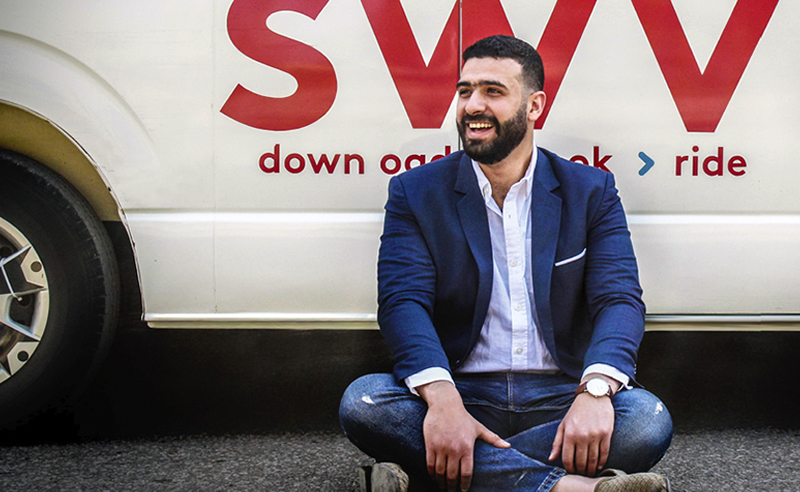When Mostafa Kandil co-founded Swvl in 2017, his mission was clear: to solve transportation inefficiencies in emerging markets. Less than five years later, Swvl became the first Middle Eastern unicorn to list on Nasdaq, all under his leadership. This article dives into Kandil’s journey, his strategic milestones, and the future he’s building in tech-driven public transit.
From Petroleum Engineer to Startup Trailblazer
Mostafa Kandil began his academic journey studying Petroleum and Energy Engineering at the American University in Cairo. Though bright in his field, Kandil soon felt constrained and began exploring entrepreneurship, fueled by a curiosity that led him to internships, international programs, and innovation hubs.
After graduating, he rapidly made his mark: first at Otlob, where he optimized operations, boosting efficiency significantly. He then joined Rocket Internet, launching Carmudi in the Philippines, growing it into the country’s top car classifieds in just six months. Kandil also served as the Head of Operations at Rocket Internet, and later played a key role in expanding Careem across Egypt and Pakistan, earning the CEO’s High Achiever award.
Creating Swvl: Public Transit Reimagined
In April 2017, Kandil teamed up with childhood friends Ahmed Sabbah and Mahmoud Nouh to launch Swvl, a startup aimed at tackling Cairo’s notorious traffic by providing tech-enabled, affordable mass transit alternatives. Swvl emerged from the AUC Venture Lab, Egypt’s first university-powered accelerator. Kandil acknowledged the Lab’s role in jump-starting Swvl’s journey, calling its role “the start of the journey.”
Expansion, Growth, and Global Reach
Swvl’s early funding rounds were promising: a seed round, followed by Series A and B, raising between $8 million and $35 million, and valuing the company at around $100 million.
Soon thereafter, Swvl expanded internationally:
- Entered Kenya, offering free Wi-Fi on buses via a partnership with local tech companies.
- Launched operations in Pakistan and Jordan.
- Moved headquarters to Dubai by late 2019.
In mid-2021, Swvl merged with a SPAC, securing a $1.5 billion valuation and listing on Nasdaq, making it one of the most successful African unicorns.
Strategic Partnerships & Acquisitions
Swvl under Kandil pursued strategic expansion through:
- Acquiring Volt Lines (Turkey) in a ~$40 million deal, gaining tech infrastructure and a client base to accelerate European growth.
- Partnering with fintech companies to introduce EV financing, enabling drivers in MENAP to own buses or rent them flexibly.
- Teaming up with advertising networks to enable in-ride advertising, supplementing drivers’ earnings and improving platform monetization.
Facing Challenges: Market Volatility and Restructuring
Like many rapid-growing startups, Swvl has navigated volatility:
- After its Nasdaq IPO, market cap dropped significantly, resulting in the loss of unicorn status.
- Revenue surged 215% to $40.7 million in H1 2022, yet losses ballooned to $161.6 million due to listing costs and high operational expenses.
- Swvl received a Nasdaq notice for falling below the $50 million minimum market cap threshold.
To address this, Kandil’s leadership enacted workforce reductions, route optimizations, and salary cuts, with plans to reach positive cash flow, supported by promising adjusted EBITDA metrics.
Vision & Impact: Kandil’s Drive to Solve Real Problems
Mostafa Kandil’s leadership style blends data-driven scaling and social impact. His efforts have repeatedly emphasized:
- Crowdsourcing commuter data to tailor efficient routes.
- Reducing congestion: each Swvl bus may replace up to 14 private cars on Cairo roads, easing billions in annual congestion costs.
- Winning licenses: Swvl became the first in Egypt to secure government authorization to operate technology-driven transport services, with plans to integrate smart transit links between Cairo and the new administrative capital.
Outlook
Mostafa Kandil’s path—from engineering student to founder of Swvl, highlights the power of innovation rooted in real-world needs. His startup reshaped mobility across emergent economies while pioneering Africa’s largest tech IPO. Despite financial hiccups, Kandil remains resilient, steering Swvl toward sustainability with cost discipline, infrastructure licensing, and smart partnerships.
As urban populations swell and mobility demands rise, Kandil’s mission, to provide reliable, affordable transit through technology, matters more than ever. His journey remains both an entrepreneurial blueprint and a compelling story of visionary leadership in African tech.












